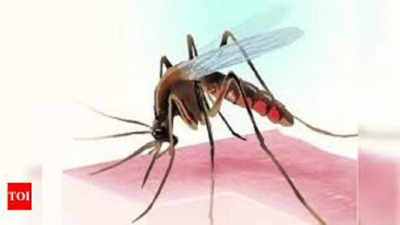
PUNE: At least two Zika patients in the city have been detected with chikungunya and dengue co-infection, top officials of National Institute of Virology (NIV) and a major city hospital representative told TOI on Thursday.
“One Zika PCR-positive sample from Pune also tested positive for chikungunya IgM antibodies, indicating a recent or acute co-infection with the chikungunya virus,” a senior NIV official said.
Dr Ameet Dravid, an infectious disease specialist from Noble Hospital, told TOI, “On June 1, we had a patient presenting typical dengue symptoms. As a precautionary measure, we conducted a comprehensive tropical fever PCR panel at a private laboratory. The patient tested positive for both dengue and Zika. Zika was thus an incidental finding.”
Dr Dravid said, “It’s evident that the mosquito population in Pune harbours multiple viruses – Zika, dengue and chikungunya – and is actively transmitting them. In this instance, it’s plausible that a single mosquito carrying multiple viruses infected the patient, or alternatively, the patient may have been bitten by different mosquitoes carrying distinct viruses. This strongly indicates that the source of Zika is within the city.”
He said, “We’ve been concerned about the potential transmission of Zika from Central America to Asia, knowing our mosquito population can transmit it too, given they already spread dengue and chikungunya. Initial indications, however, suggest that the Zika infections have been mild so far. The main worry would be if we start seeing congenital abnormalities in pregnant women infected with Zika.”
Regarding the severity of co-infections, Dr Dravid said, “Our patient with both Zika and dengue infections didn’t seem to have a severe disease. This, however, cannot be generalized to all co-infection cases as we’re just at the beginning of the monsoon season. The true severity of co-infections may only become apparent after a few months if we see more such patients.”
Dr Sanjay Pujari, director and chief consultant at the Institute of Infectious Diseases, said, “Coinfections with dengue, chikungunya and Zika viruses have been reported during periods of intense arboviral transmission. These coinfections are likely because of independent transmissions [separate mosquito bites carrying different viruses] rather than dependent transmissions [a single mosquito bite carrying multiple viruses]. While the symptoms of each disease may overlap in the presence of co-infection, increased disease severity is rare. However, for those who develop neurological manifestations, increased severity has been observed with dual infections compared to mono-infections. Close monitoring and early diagnosis are warranted in such cases.”
PMC’s assistant health officer Dr Rajesh Dighe told TOI, “Dengue can be life-threatening in severe cases, while chikungunya typically causes significant illness. Zika generally causes mild symptoms in most people. In cases of co-infection, the treatment approach would primarily focus on managing the symptoms of dengue or chikungunya, the virus that’s co-infecting a patient with Zika. Special attention, however, needs to be given to pregnant women co-infected with Zika due to the potential risk of microcephaly or other congenital abnormalities in the foetus.”
The situation in Pune has raised questions about the source and transmission of the virus. When approached for clarification, a top virologist, said, “Zika would be transmitted by mosquitoes and rarely through transfusion of blood products. Mosquitoes are typically tested in pools. So, if the pools are not positive, it would not rule out Zika in mosquitoes, due to biases in sample collection and processing and this also depends on the sensitivity of the tests.”





